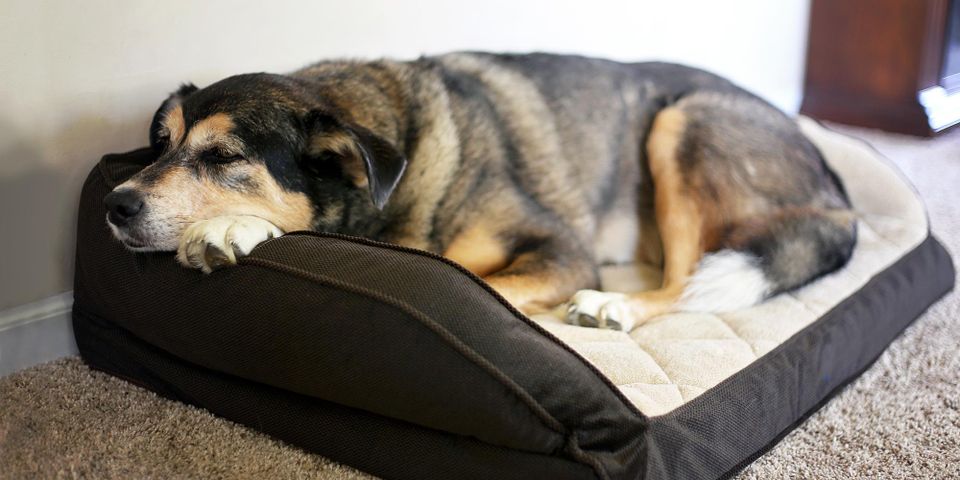What Are Common Health Issues in Senior Dogs?

As a dog ages, they develop health problems that sometimes require the attention of a veterinarian. However, many issues can be at least partially treated at home. You’ll need to be familiar with the most common maladies so that you know how to help your dog and when they should be taken to a veterinary clinic. Below, find typical health problems that senior dogs face.
5 Common Health Problems in Senior Dogs
1. Joint Pain and Inflammation
With age, a dog’s joints often get painfully stiff and become inflamed, leading to osteoarthritis. This means that the joints’ lubricating fluids and cartilage are slowly deteriorating, so the bones don’t grow or move correctly. The veterinarian can’t cure it, but they can offer medication to slow it down and alleviate the pain. Since extra weight strains the joints, put your dog on a healthy diet, and make sure they get good exercise.
2. Problems With Vital Organs
Chronic kidney failure may cause your dog to struggle with incontinence, urinary tract infections, and digestive issues. They may also suffer from heart disease, especially congestive heart failure. If you take your dog to a veterinary clinic regularly, some of these conditions may be prevented or slowed. Keep your dog on a diet specifically meant to support the health of the kidney, heart, and digestive system, and avoid letting your dog become obese.
3. Loss of Vision and Hearing
Although you can routinely clean your dog’s ears to decrease the chances that they’ll go deaf, it may still happen as a natural result of aging. In that case, you’d likely benefit from doing deaf dog training with them. They’re also prone to developing cataracts, which can be fixed with surgery at a veterinarian clinic. However, as long as your dog can still smell, they can still function without facing too many problems.
4. Cognitive Dysfunction
 If your dog starts barking or whining for no discernible reason, seems lost and confused in common places, isn’t sleeping or urinating, or seems more withdrawn than usual, they might be exhibiting signs of dementia. Besides stimulating your dog’s muscles with play and providing them with food rich in antioxidants to promote brain function, your veterinarian can prescribe medication to ease the symptoms.
If your dog starts barking or whining for no discernible reason, seems lost and confused in common places, isn’t sleeping or urinating, or seems more withdrawn than usual, they might be exhibiting signs of dementia. Besides stimulating your dog’s muscles with play and providing them with food rich in antioxidants to promote brain function, your veterinarian can prescribe medication to ease the symptoms.
5. Tumors and Cancers
Various types of cancer can afflict senior dogs, and the symptoms are not always obvious. If you find any strange bumps during your normal pet care routine, have a veterinarian check if they could be cancerous tumors. Even with no bumps, take your dog to a clinic regularly so that the vet can alert you to any issues and start treatments early if necessary.
Senior dogs need compassionate, thorough, and knowledgeable veterinarians, and you can find them at Dykes Veterinary Clinic in Foley, AL. They’ll also support your dog’s health by offering spaying and neutering services, as well as pet vaccines. If you need to go out of town, you can even trust the clinic with boarding your dog. For a full scope of their services, call them at (251) 943-3211 or check out their website.
About the Business


